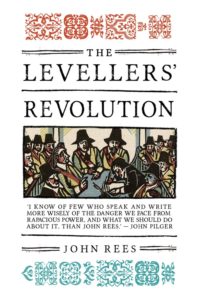
In 1649, a pamphlet titled Tyranipocrit Discovered was published in Rotterdam. Fusing the terms “tyrant” and “hypocrite,” the anonymous author called for an end to economic, religious, and political oppression in England.
Whole Number: 66

In 1649, a pamphlet titled Tyranipocrit Discovered was published in Rotterdam. Fusing the terms “tyrant” and “hypocrite,” the anonymous author called for an end to economic, religious, and political oppression in England.

There is a growing body of ecomarxist and ecosocialist literature in the English-speaking world, which signals the beginning of a significant turn in radical thinking.

To me the role of eco-socialists is to raise transitional demands, demands that bring a broader understanding of the role of capital in creating climate change and the ways that capital-ism can be challenged by working people and people most affected by the vast inequality it has created.

Johnson asks the reader not to pivot on certain ethnically motivated political affiliations lest we lose our class-conscious focus, and yet I find myself thinking about the ways Blackness is constructed in the arguments presented and how that matters.

Cedric G. Johnson’s “The Panthers Can’t Save Us Now” is a compelling, historically grounded critique of contemporary anti-racist campaigns against police brutality and mass incarceration. While Johnson is encouraged by the swell of organized opposition to the carceral state and . . .

How Johnson’s critique of the Black Lives Matter movement elaborates on Luxemburgist themes and provides a path to addressing not only police killings, but also the larger capitalist assault that drives them.
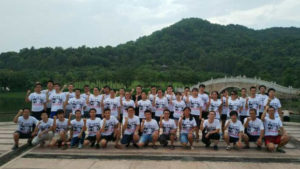
The Jasic case, in particular relationships that were forged between students and workers, reveals important developments in China’s politics.
Despite the dire threat posed by our multiple ecological crises, and despite shelves of books theorizing the relationship between capitalism and our ecological crisis, even radical environmentalists find themselves lost for a strategy. How do we move forward? . . .

Climate scientists tell us we face a “climate crisis”: Since the 1990s, scientists have been trying to convince governments to keep atmospheric CO2 concentrations below 350 ppm in order to keep the global temperature below 1.5 degrees Centigrade above pre-industrial . . .

The central problem was the blatant violations of workers’ rights and interests by both the Jasic employer and the Chinese government, including the country’s only official trade union organization, the All-China Federation of Trade Unions (ACFTU).
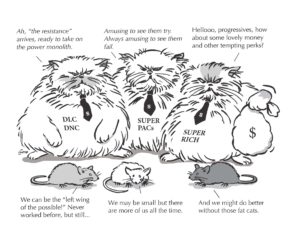
What can socialists today learn from the experience of the left in the past as it grappled with the issue of electoral politics? Over the last 50 years, American leftists have in general adopted two alternative strategies for dealing with . . .
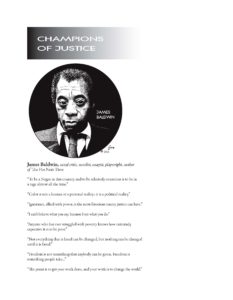
One need not be a Christian or religious at all to feel that the human race, if it does not change its behavior, seems to be heading toward an apocalypse, toward the destruction of the planet and human life.
Historian Cedric Johnson’s essay “The Panthers Can’t Save Us Now,” published in 2017 in the new socialist journal Catalyst, generated a lot of discussion and won the Daniel Singer Memorial Prize.
Addressing a historic discussion about the . . .

My 2017 Catalyst article, “The Panthers Can’t Save Us Now,” was addressed to a specific conundrum within contemporary left politics and anti-policing struggles in particular: that is, the strategic problem of building a counterpower capable of winning in the context . . .

As the war in Syria draws to a close, the debate on the U.S. left over that conflict seems as intractable as ever.

The rise and expansion of right-wing populism and the dramatic unfolding of global politics in the Trump era have had significant and alarming implications for the Palestinian people, leadership, and question overall.

For those who expected the midterm elections to be a slow grinding of the far right and the nation’s wax museum-Bonapartist president, the mills of the gods on election night operated as if on seasonal layoff.
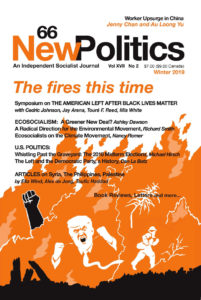
Welcome to new issue.
FROM THE EDITORS
WHISTLING PAST THE GRAVEYARD: NOTES ON THE 2018 MIDTERM ELECTIONS, Michael Hirsch
THE LEFT AND THE DEMOCRATIC PARTY: THE EXPERIENCE OF A CENTURY, Dan La Botz
THE AMERICAN LEFT AFTER BLACK LIVES MATTER
WHO’S AFRAID OF LEFT POPULISM? ANTI-POLICING STRUGGLES AND . . .